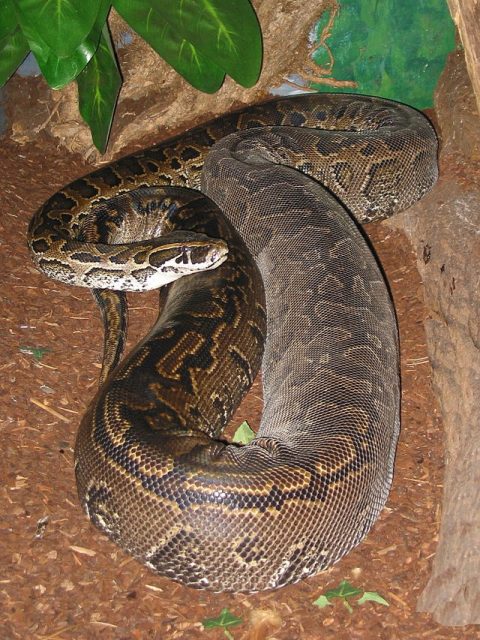Type the name of the breed you're looking for below
[wpdreams_ajaxsearchlite] Don't see the breed your're looking for? Click here and let us know!
African Rock Python
| Place of Origin and Range | The African rock python is found throughout almost the whole of sub-Saharan Africa, from Senegal east to Ethiopia and Somalia, south to Namibia and South Africa. |
| Description | The African rock python's body is thick and covered with colored blotches, often joining up in a broad, irregular stripe. Body markings vary between brown, olive, chestnut, and yellow, but fade to white on the underside. The head is triangular and is marked on top with a dark brown “spear-head” outlined in buffy yellow. Teeth are many, sharp, and backwardly curved. Under the eye, there is a distinctive triangular marking. |
| Morph Patterns Available | Yes |
| Adult Size | Can grow to 7.5 m (24 ft 7 in) |
| Accommodation | A suitably rocky habitat with a rocky area for this snake to hide is essential. A large cage is require for these mammoths. At least half the length of the snake and half that for width and depth. High humidity(60-80%), branches for climbing. A hide to help regulate temperature along with a day basking spot at 80'F(27'C). Always include a dish big enough for bathing. |
| Lifespan | Can live 25+ years |
| Feeding / Diet | Their natural diet includes mammals and occasionally birds. Small specimens eat mainly rodents such as rats, whereas larger individuals switch to prey such as chickens or fowl. |
| Breeding | Reproduction occurs in the spring. African rock pythons are oviparious, laying between 20 and 100 hard-shelled, elongated eggs in an old animal burrow, termite mound or cave. The female shows a surprising level of maternal care, coiling around the eggs, protecting them from predators and possibly helping to incubate them, until they hatch around 90 days later. It was recently discovered in a manner unusual for snakes in general and pythons in particular that the female guards the hatchlings for up to two weeks after they hatch from their eggs in order to protect them from predators. |
| Other Considerations | An incredibly aggressive snake. They prefer to be solitary. Snakes are relatively hardy low maintenance animals when kept in the correct environment, and require little day to day care other than feeding and cleaning out the tank as required. However, like all animals, they can still become sick or injured despite our best intentions to prevent this. |



